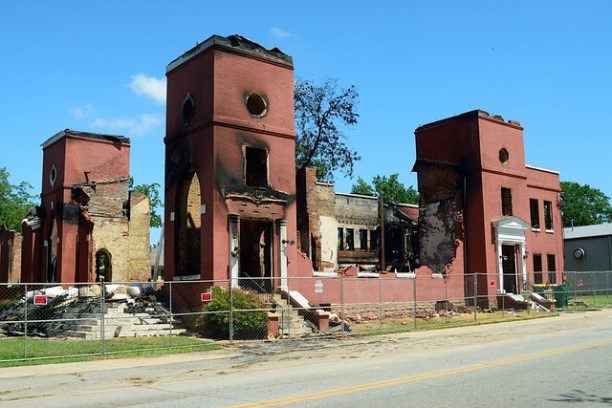In the blink of an eye, a fire can turn a peaceful home into a scene of devastation, making it crucial for homeowners to prioritize fire safety preparedness. A fire can erupt unexpectedly, whether from an electrical short or a mishap in the kitchen. Understanding fire safety measures and proactive prevention is essential. Our expert guide offers insightful tips on how to prevent fires in your home and outlines the best practices for responding effectively if a fire does occur.

Proactive Prevention Measures
Make sure to put up smoke alarms and carbon monoxide detectors throughout your home, including in the basement and attic. Test them often and change the batteries when necessary to make sure they work properly. This precaution could potentially save both your home and your life.
Practice Safe Cooking Habits
Always supervise cooking appliances and never leave them unattended, especially the stovetop. Keep flammable items like dish towels and oven mitts away from heat sources, and regularly clean up grease buildup from cooking surfaces. If a grease fire happens while cooking, NEVER use water. Turn off the heat right away, cover the fire with a metal lid or cookie sheet, and use baking soda or a fire extinguisher to put it out.
Safety Precaution with Heating Systems
Make sure there’s a three-foot space around space heaters, furnaces, and fireplaces to prevent them from overheating nearby objects and causing fires. Schedule regular inspections and maintenance for heating systems to catch and fix any potential hazards early.
Implement Electrical Safety
To prevent electrical hazards, don’t overload outlets or extension cords, and avoid using damaged wiring. Install ground fault circuit interrupters (GFCIs) in moisture-prone areas like bathrooms and kitchens to reduce the risk of electrical fires.
Store Flammable Materials Safely
Store flammable liquids like gasoline, propane, and paint thinner in well-ventilated areas, keeping them away from heat sources and ignition points. Use approved containers and follow manufacturer guidelines for safe storage and handling.
Develop an Evacuation Plan
Develop a thorough evacuation plan detailing escape routes, designated meeting spots, and emergency contacts. Conduct fire drills with family members to ensure everyone understands how to respond calmly and effectively during a fire emergency.
Preventing fire damage involves being proactive and adhering to fire safety practices. Installing smoke alarms, practicing safe cooking methods, and using heating equipment cautiously are important preventive measures homeowners can take to reduce the risk of fire incidents and safeguard their homes and families. In case of a fire, Bend Fire Restoration offers crucial assistance by providing thorough cleanup, restoration, and reconstruction services. Their skilled technicians manage structural repairs, drywall replacement, flooring installation, and painting meticulously, ensuring your home is returned to its pre-fire condition. By combining proactive prevention with professional restoration, we can protect our homes and communities from the destructive impact of fire damage.
